OIDN'S Network
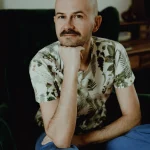
Robert Rient
Robert Rient (real name Łukasz Zamilski) is the initiator of the recognition of the Odra River as a subject of rights. He founded the Odra Tribe and the Odra Person Foundation (NGO). He is a freelance journalist on the environment, climate crisis and therapeutic methods of working with the body, emotions and mind.
In 2022, in response to the ecological disaster on the Odra River, he initiated activities for the legal recognition of the river’s legal personality. His appeal to the government in this matter was supported by over 13,000 people by June 2023. He organized the “March for the Odra, which began on April 20, 2023, with 233 people taking part, who walked along the river for 44 days and over 937 kilometers. He initiated and coordinated the 50-day campaign for the recognition of the river as a legal person, “Flows for the Oder”.
In this sense, he made a valuable contribution to the establishment of the 15-person Legislative Initiative Committee “Clean Odra”. He had the privilege of collaborating with Prof. Jerzy Bieluk and Dr. Stanisław Kordasiewicz on the draft of the Act for recognizing the Odra River as a legal person. The project was presented to the Polish Parliament with 1,000 signatures of support. On 31 January 2025, the Marshal of the Polish Parliament issued a decision to accept the proposal. In the spirit of collaboration and with the aim of fostering understanding, he is committed to the campaign for the bill to be presented before parliament for consideration. This follows the parliament’s decision to allow a period of time until 30 April 2025 for the collection of 100,000 signatures.
A peace activist, he is also the author of the books “Visions of Plants, or Fifty Medicinal Plants and a Mushroom”, “A View. Around the World – Around You”, and the novel “Jeremy’s Ghosts”, nominated for the Nike Literary Award.
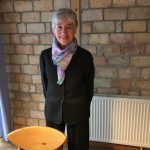
Maude Barlow
Maude Barlow is a Canadian activist and author. She chairs the board of Washington-based Food and Water Watch and is the founder of the Blue Planet Project. Maude co-founded the Council of Canadians and chaired its board for over three decades. She serves on the Board of Advisors of the Global Alliance for the Rights of Nature and is a former Councillor with the Hamburg-based World Future Council. Maude is the Chancellor of Brescia University College in London Ontario.
Maude is the recipient of sixteen honorary doctorates as well as many awards, including the 2005 Right Livelihood Award (known as the “Alterna-tive Nobel”), the 2005 Lannan Foundation Cultural Freedom Fellowship Award, the Citation of Lifetime Achievement at the 2008 Canadian Envi-ronment Awards, the 2009 Earth Day Canada Outstanding Environmental Achievement Award, the 2009 Planet in Focus Eco Hero Award, and the 2011 EarthCare Award, the highest international honour of the Sierra Club (US).
In 2008/2009, she served as Senior Advisor on Water to the 63rd President of the United Nations General Assembly and was a leader in the campaign to have water recognized as a human right by the UN. She is the creator of the Blue Communities project in which municipalities pledge to protect water as a human right and a public trust and ban plastic bottled water. There are now more than 25 million people living in official Blue Community towns and cities, including Paris, Berlin, Brussels, Thessaloniki, Los Angeles, Vancou-ver and Montreal.
Maude is also the author of dozens of reports, as well as 20 books, including Boiling Point: Government Neglect, Corporate Abuse and Canada’s Water Crisis; Whose Water is it Anyway? Taking Water Protection Into Public Hands; and her new book, Still Hopeful, Lessons From a Lifetime of Ac-tivism.
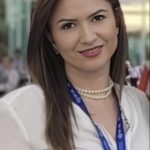
Astrid Forero
Astrid Forero holds a Law degree from the University UPTC in Colombia, complemented by a specialization in Environmental Management. She furthered her education with studies on Climate and Energy Challenges at Harvard University. As a specialist in GHG emissions, Astrid holds a coveted Carbon Footprint Auditor Diploma from AENOR. Over the years, Astrid has worked as a lawyer defending the environment and communities in regional areas, demonstrating a steadfast commitment to environmental causes. As a co-founder and member of the Colegio de Abogados Ambientalistas de Boyaca, she has actively participated in legal actions to protect nature. Astrid has collaborated with NGOs, contributing her legal expertise to various environmental topics. Currently serving as the Director of CES Environmental Solutions, Astrid leads a dedicated team in developing and implementing initiatives aimed at protecting and restoring nature, reflecting her unwavering dedication to environmental stewardship.

Andrew Aijuka
Andrew Aijuka is an experienced Video Journalist and documentary filmmaker with a demonstrated history of working in the media production industry. Skilled in broadcast, Television production, Radio and Podcast Production, and Feature Films. He has a Diploma in Journalism and a Bachelor’s Degree in Mass Communication/Media Studies and Journalism from Uganda Technology And Management University.
Andrew reports on water and biodiversity stories at Water Journalist Africa under InfoNile and serve as a groundwater correspondent for the International Groundwater Resources Assessment Centre.

Dominique Paul
Born in Montreal, Dominique Paul is a multidisciplinary artist. She has both a studio and a performance practice, integrating interactive technologies and creating exoskeletons for the body and for images, to address social issues such as increasing inequalities, environmental injustice and the decline of biodiversity. In 2022, she is leading a collaborative spoken word performance with 150 teenagers where each participant will create a structure to become one of the 150 animal species at risk in Quebec.
While studying for her master’s degree in Sydney, Australia (UNSW, 2000), she was invited to present her research at Barnard College (Columbia University), New York City. She was enthralled by the city and has been sojourning there ever since, witnessing the gentrification and exodus of many artist friends, a fact that inspired her performance practice in the public space. Since 2012, she was awarded multiple grants for residencies and long stays, exhibiting and participating in over twenty events such as UnHomeless NYC, Kingsborough Art Museum, and Mapping Life, NJCU Visual Arts Gallery, and presenting videos at 10 Times Square and at Miyako Yoshinaga gallery where she is represented. Her work was featured in HuffPost, Time Out, New York: The Cut, Art Slant, SFAQ, Photograph and Whitehot Magazine.
In Europe, she exhibited mainly in France’s Lyon area (museums, an art centre and gallery) and at the Paris Photo Art Fair. She took part in two international exhibitions in China: the Beijing Art Biennale and Montreal Contemporary Art, Shanghai. In 2023, she will have a solo exhibition at the Art Museum of the Americas, in Washington, D.C., where her artworks are part of the collection as well as the Smithsonian Institution’s. In 2019, she published an essay with L’Harmattan, Paris, updating her doctoral thesis (UQAM, 2009).
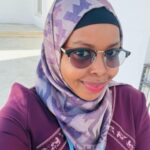
Madina Amin Hussein
Madina Amin Hussein is the founder and Executive Director of Global Nature Conservation. She founded the organization with an initiative to promote environmental conservation in Northern Kenya, empower women and girls in dry lands of Kenya through nature-based enterprises, restore degraded ecosystems and to advocate for protection of indigenous species in order to prevent their extinction. Madina holds Bachelor of Arts in Education from Mount Kenya University and is currently pursuing Master’s of Arts in Development Studies. She is an award-winning environmentalist, Zuri award honoree, Gender Just Climate Solutions Award honoree and heroine in forest conservation.
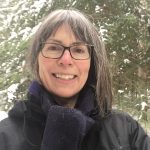
Ginette Riopelle
Ginette Riopelle is an energy consultant. She holds a PhD in Mechanical Engineering from the University of Waterloo and is a member of l’Ordre des ingénieurs du Québec. Aside from working in the field of energy efficiency and energy management, she wrote a self-published book titled Nudge for the Planet – A Guide towards a New Worldview and aimed at increasing awareness of the environmental emergency.
Ms. Riopelle has been a member of the Knowledge Network of the United Nations’ Harmony with Nature Program since 2019; In relation to this affiliation, she promotes ecological literacy, which involves developing systems thinking and understanding strategies that strengthen the resilience of natural systems. The application of these strategies to human spheres of activity leads to regenerative practices – such as circular economy, biomimicry, regenerative agriculture and ecological economy – which are more respectful of Nature than current practices, and which have the potential of limiting global warming and biodiversity decline.
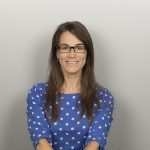
Lenka Kruckova
Lenka Kruckova is a lawyer specializing in human rights and environmental law. She completed her bachelor’s degree at the Université du Québec à Montréal, and obtained a master’s degree in international law with a specialization in environmental law at the University of Utrecht (Netherlands).
She has been working for several years in the water sector, in particular on water governance and the rights to water and sanitation. This field allows her to combine her expertise on human rights with her passion for the environment. Her career has taken her to work with governments, NGOs, and private actors in various countries to contribute to sustainable resource management and positive environmental impacts.
Since 2018, Lenka has been working at Simavi, a non-governmental organization based in the Netherlands.
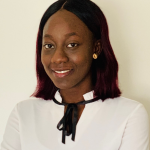
Sokhna Sene
With an undergraduate degree in Environmental and Workplace Health, Sokhna Sene has an academic background, combined with field experience that has enabled her to work strongly in environmental protection.
In addition to her work in Health and Workplace Safety risk prevention, she has participated in the drafting of environmental assessment reports, helping Senegalese companies improve their ecological footprint while proposing innovative solutions that respect the environment and the regulations in force in Senegal. She has developed a keen interest in the preservation of water resources, a resource that she considers so precious but also threatened in the future due to climate change. She advocates for a paradigm shift by emphasizing the potential for action and practice of each of us to ensure better sustainable water management.
She is currently pursuing a Master’s degree in Environment and Sustainable Development, specializing in water management at the Université de Montréal.
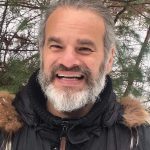
Emmett Phil Coriat
Emmett Phil Coriat is the founder of Natural Leadership (www.natureandleadership.com). He is a pharmacist and has been a successful entrepreneur in healthcare innovation for more than 25 years, as a venture capitalist, a CEO/founder of biotech startups and most recently as a partner at AEC Partners, a healthcare strategic advisory boutique firm, where he leads the Healthcare Technological Innovation practice.
After rebounding from a burnout and thriving thanks to Nature, he became a certified Forest Bathing guide. He then spent time with various Earth-based peoples to learn from their relationship with Nature (Kichwas in the Ecuadorian Amazon, Heiltsuk in British Columbia).
Since then, he has dedicated his life to the creation of a Nature connection practice that:
- serves as an antidote to the stress, anxiety and burnout epidemic that our society is facing
- combines all the scientifically demonstrated benefits of Nature
- enables accessibility to all
- caters to the needs and the context of business leaders and their teams
Natural Leadership offers business leaders Nature-inspired programs that restore Wellbeing and enhance Performance for their teams. The programs are based on the Japanese practice of Shinrin Yoku (sensory immersion in Nature), and draw on more than 900 publications of scientific findings to maximize the benefits of Nature to face the stress, anxiety and burnout epidemic of the 21st century.
After reviewing all the scientific literature about Nature and human health, Emmett Phil has concluded that stress and burnout is in fact a dis-connection epidemic. With urbanization and progress, our dis-connection from the more than human world has led to disease. Other consequences are disconnection from others and from self (or purpose).
Emmett Phil is a member of Biotopnatura (www.biotopnatura.com) and active in the Derechos de los Arbolescampaign which aims to have personhood rights granted to trees in Spain and in the world. He is a council member of the association Nature and Forest Therapy of Canada (NFTC).
Emmett Phil lives in Ayer’s Cliff, Quebec and holds dual Canadian/Spanish nationality.
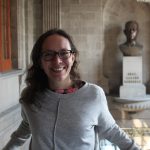
Clara Juliana Neira
Clara Juliana Neira Rueda is a lawyer at the Industrial University of Santander and a specialist in competition and free trade law at the Pontifical Xavierian University, with subjects from the Master in Political Studies at the National University of Colombia.
For five years, she worked at the Constitutional Court of Colombia, where she drafted judgements for the revision of guardianship related to the protection of the fundamental rights to participation and prior consultation of communities affected by administrative measures and development projects.
She is currently working on her master’s thesis, which compares the legislative reforms and judicial decisions that have determined the conditions for activating, processing and voting in popular consultations on environmental issues in Colombia, Ecuador and Mexico.

Émilie Doyon
Having already received her Bachelor of Arts degree from McGill University with distinction in Feminist Studies, Émilie Doyon is currently doing her LL.B and J.D. degrees at Université de Montréal. In law, she works as a research assistant for Prof. Miriam Cohen (human rights). Since her first year of law school, Émilie has been involved in her community through the Student Pro Bono Network of Canada, at the small claims court and as a canadian human rights researcher.
In her spare time, Émilie enjoys running, rock climbing, and playing outside.
She is personally invested in the fight for the recognition of human rights and the rights of Nature. Émilie profoundly believes that we are all responsible for creating a just and sustainable world.
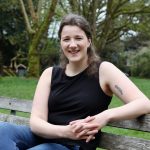
Gabrielle Plowens
Gabrielle Plowens is a lifelong
quest to champion the rights of nature. Her academic voyage led her to a
master’s degree in Nature, Society, and Environmental Governance from the
University of Oxford and a bachelor’s degree in environmental studies from the
University of British Columbia. For example, her master’s dissertation delved
into the implications of legal personhood models for rivers on the
representation of Indigenous stakeholders and the distribution of impacts and
benefits, particularly concerning nature-centric worldviews and more-than-human
rights. These academic adventures have nurtured her deep understanding of
environmental justice issues, non-human personhood, indigenous stakeholder
relationships, water management and policy, and our intricate ecological
systems.
Complementing her scholarly
pursuits, her professional landscape has further shaped her mission. Here role
as a project coordinator at the Smart Earth Project afforded her experience in
project management, research coordination, and fostering collaboration among
experts. Her time at UBC Camps, where she managed our aquatic daycamps, has
allowed her to exhibit adaptability and commitment to inclusivity. Her
professional palette also extends to areas such as sustainable marketing,
community and stakeholder engagement, and digital communication.
Her overarching goal is to
translate her unwavering love for the rights of nature into tangible actions.
With a diverse skill set encompassing academic rigor and practical experience, she
is determined to address environmental challenges and pave the way for a
sustainable, harmonious future for all. In my free time, she loves to sing in her
local choir, go on long hikes with her partner, and read about our changing
world.
